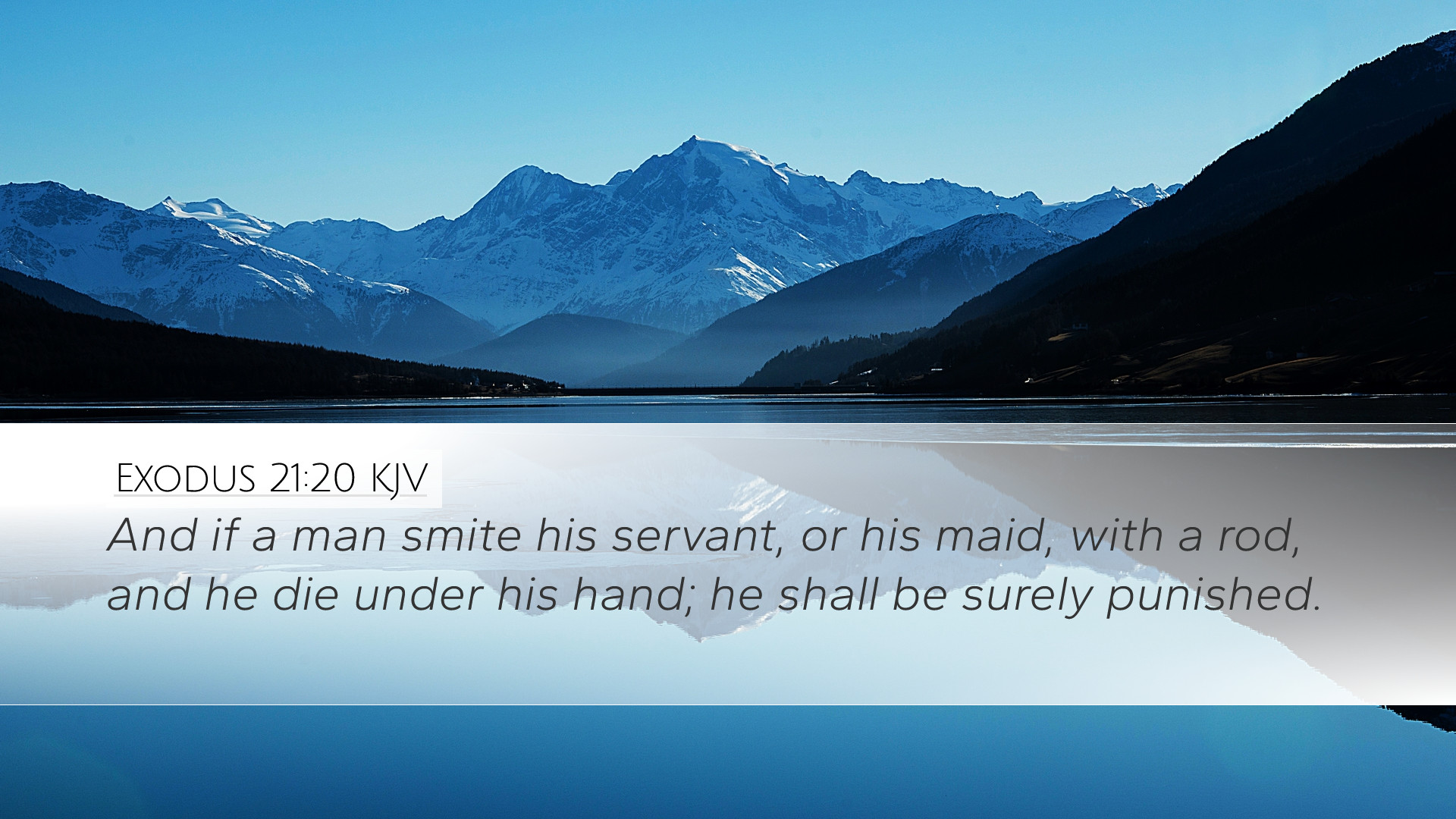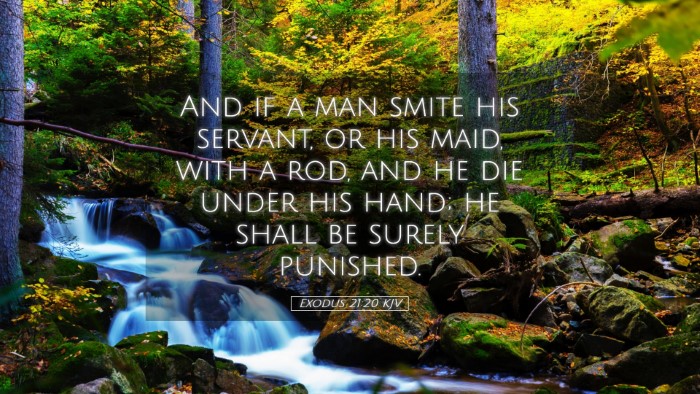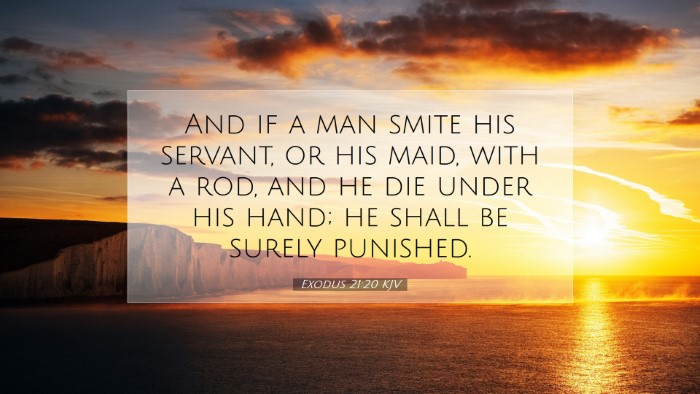Exodus 21:20 - Biblical Commentary
Verse: Exodus 21:20 - "And if a man strike his servant, or his maid, with a rod, and he die under his hand; he shall be surely punished."
Introduction
The passage of Exodus 21:20 is an important legal text within the Mosaic Law that addresses the treatment of servants and their rights. It reflects the moral and ethical standards expected from the Hebrew people and emphasizes the weight of justice in the community. The verse specifically pertains to issues of violence and the consequences of harming others, particularly those in servitude.
Commentary Overview
This commentary will integrate insights from Matthew Henry, Albert Barnes, and Adam Clarke, who provide comprehensive analyses concerning the implications, context, and theological significance of this verse.
Contextual Background
Matthew Henry notes that the laws provided in Exodus, including those about servants, serve to form a distinct character for God's people, differentiating them from surrounding nations. Henry emphasizes that the treatment of servants was a reflection of one's moral disposition. Thus, laws governing behavior toward servants signal broader social and theological principles.
Albert Barnes contextualizes the social structure of ancient Israel where servitude was common. He elaborates that this verse underscores the serious ramifications of violence against an employer's servant, denoting that such actions were not just personal crimes but offenses that directly contradicted the community's ethical fabric.
Exegesis of the Verse
Literal Interpretation
Adam Clarke interprets the language of the verse with precision, pointing out that "a man strike his servant" indicates a deliberate act of violence. The text explicitly mentions "with a rod," which Clarke suggests implies a level of authority and control that surpasses mere physical punishment, illustrating the gravity of the act.
- Intent and Consequences: The phrase "he shall be surely punished" indicates that intent plays a crucial role in determining the seriousness of the act and the consequent punishment.
- Authority and Accountability: Clarke stresses that the master is not only responsible for his actions but must also reckon with the authority bestowed upon him, thus highlighting the dual nature of power and accountability.
Theological Implications
The issues of justice, mercy, and morality are interwoven within this verse. Matthew Henry emphasizes that this law was instituted to deter potential abuses of power, promoting justice in interpersonal relationships. The severity of punishment signifies the value of human life, regardless of one's social standing.
Albert Barnes further highlights that this text aligns with God’s overarching aim: to cultivate an environment of care and protection for the vulnerable, reflecting the character of God as a just and loving protector.
Applications for Modern Readers
This verse and its commentary provide profound insights for contemporary faith practices. They prompt reflection regarding the treatment of those who are in subservient positions in society, reminding us of our responsibilities towards increasingly vulnerable populations.
Contemporary Ethical Considerations
- Workplace Integrity: The ethical standards depicted in this law can be extrapolated to modern workplace interactions, emphasizing respect and dignity for all workers.
- Advocacy for the Marginalized: Just as this verse calls for the protection of servants, modern believers are reminded to advocate for the rights and dignity of marginalized groups in society.
Spiritual Reflection
In reflecting upon Exodus 21:20, Adam Clarke invites readers to consider their motivations in relationships that involve power dynamics. Self-examination and repentance are essential for believers to align their actions with biblical compassion and justice.
Conclusion
In summation, Exodus 21:20 serves as an essential reminder that justice and humanity should prevail in all aspects of societal conduct, especially concerning the treatment of subordinates. Drawing on the insights of Henry, Barnes, and Clarke enhances our understanding of this critical text, allowing readers—pastors, students, and scholars alike—to apply its truths in a manner that resonates within both personal and communal contexts.


